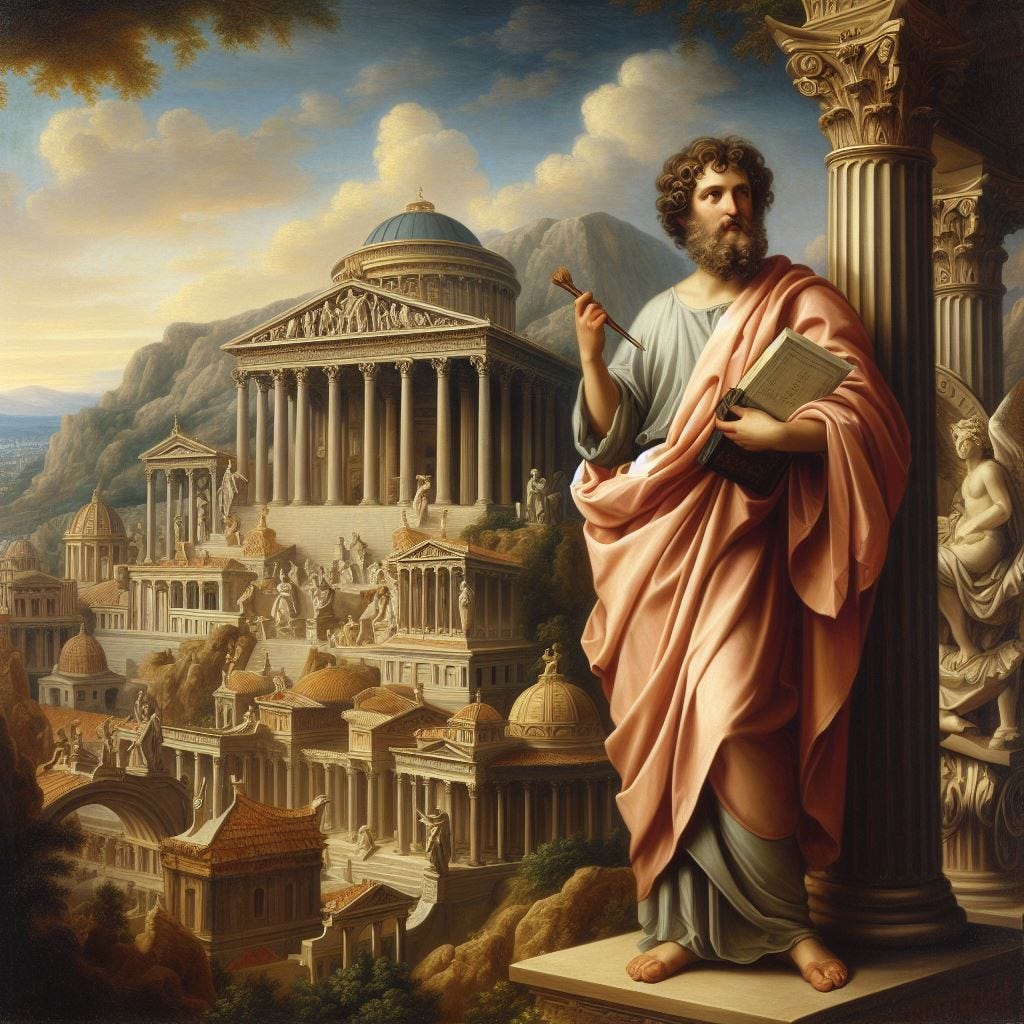As we approach the aftermath of the 2024 U.S. presidential election, this discussion offers insights into how Stoic philosophy can guide us through the intense partisanship often seen in today’s political landscape. This reflection, rooted in Stoicism, invites us to consider our responsibilities not only as citizens of our nations but also as members of a broader human community.
The Stoic Approach to Politics
In ancient Stoic thought, being “political” wasn’t about aligning with a party or ideology. Instead, it was about engaging with the community and contributing to the well-being of society. To the Stoics, politics meant prosocial action—acting in a way that benefits others while maintaining personal integrity. This understanding urges us to focus on virtue, justice, and character, transcending superficial partisanship and viewing ourselves as “citizens of the universe” first.
Today, the term "politics" can feel tainted with cynicism, often associated with self-interest and divisiveness. However, Stoics encourage us to engage with our community in meaningful ways, aiming to support the collective good rather than seek personal gain.
Political Division Through a Stoic Lens
Each election cycle brings claims of it being the “most divisive” one yet, which speaks to the polarized nature of voting between two distinct parties. However, Stoicism would suggest that division is antithetical to a virtuous society. While individual viewpoints may differ, Stoics emphasize developing one's character, aligning actions with truth, and recognizing shared humanity as the foundation of community.
Notably, Stoicism allows for differing perspectives. A Stoic could lean conservative or liberal, as political orientation is secondary to one’s commitment to virtue, justice, and personal character. While political ideologies may differ, Stoics across the spectrum prioritize integrity, honesty, and justice—values that transcend political lines.
Considering Character in Leadership
Stoic philosophy emphasizes the importance of character in leadership. When selecting a leader, the Stoics would urge us to prioritize character over promises, as character reveals one's true intentions and trustworthiness. Yet assessing character through a screen or public statements alone is challenging. Personal impressions often change upon face-to-face encounters, revealing how little we truly know about someone based on appearances or media.
In this digital age, Stoics would encourage humility, recognizing that our understanding of any candidate’s character is limited. Rather than relying solely on campaign promises, we should consider historical actions and consistency, as these can offer glimpses into a leader’s integrity and potential for virtuous governance.
A Stoic Obligation to Vote Thoughtfully
According to Stoicism, civic engagement, including voting, is not optional but a moral duty. The act of voting reflects a commitment to the welfare of our community and world. However, a Stoic approach to voting requires thorough research and discernment rather than merely aligning with partisan narratives or single issues. The Stoics would advise a holistic evaluation of each candidate’s character, values, and alignment with justice and virtue.
Voting should be an informed decision made with the well-being of the community in mind. It’s a responsibility to act with wisdom and careful consideration rather than impulse or convenience.
Acceptance and Humility in Election Outcomes
With the election outcome settled, how should we respond? In Stoicism, acceptance and humility are key. The Stoic approach acknowledges that democracy often results in a near-even split, meaning about half the population may disagree with any given leader. Stoicism calls for acceptance of this reality and, rather than harboring resentment, encourages us to wish for the leader’s success for the sake of society.
Rooting for the leader’s success, even if they’re not our personal choice, reflects patriotism in the Stoic sense—desiring the best for the community. While it’s natural to feel disappointed, Stoics would remind us that wishing failure on a leader harms the very community we seek to protect. Instead, we should adopt a posture of openness, recognizing that even opposing perspectives might bring positive outcomes.
The Stoic Path Forward: Civic Engagement without Division
True Stoicism discourages divisiveness. Rather than fueling the fires of partisanship, Stoics would encourage reflection, humility, and shared goals. Engaging in civic duties—researching candidates, voting thoughtfully, and respecting election outcomes—represents a commitment to the Stoic values of wisdom, justice, and community. Even if we don’t agree with every policy or viewpoint, our civic duty lies in contributing positively to the collective good and cultivating virtues that benefit everyone.
As citizens, we should aim to embody these Stoic ideals, recognizing the importance of character, engaging meaningfully in our communities, and rooting for the success of leaders, irrespective of personal biases. Only through such actions can we hope to foster a society that, while diverse in opinion, remains unified in purpose.
Support the Show
You can expect one free episode of the podcast every single Tuesday. These episodes will either be a 20-minute (or so) solo episode diving deep into a single philosophical topic, or a guest episode, where I bring on incredible guests to chat philosophy.
For the full Strong Stoic experience, I encourage you to consider becoming a paid subscriber. You’ll get access to premium episodes of the Paradoxically Speaking podcast with Joshua Bertolotti, access to my Steps to Success interview series, a bi-weekly exclusive article analyzing a particular quote, and additional benefits from time to time.
***If you’d like to become a paid member but cannot afford it, feel free to contact me directly; I’ll happily provide a complimentary membership (no questions asked).
Stay Connected
Brandon Tumblin is most well-known for his podcast, The Strong Stoic Podcast, where he discusses philosophical ideas (solo and guest episodes).
Brandon is also a writer for THE STOIC, the official journal of The Stoic Gym.





